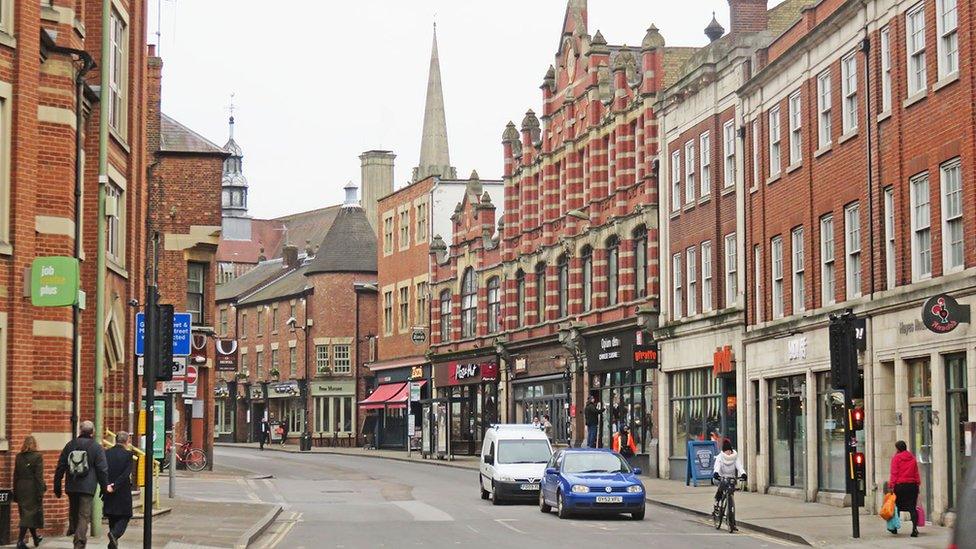Oxford workplace parking charge to reduce congestion
- Published

Bus gates and improved cycle routes have also been included in the "bold measures", the councils said
Employers could be charged for providing parking for workers under plans to reduce congestion in Oxford.
Oxfordshire County Council and Oxford City Council have announced a series of proposals to reduce the amount of traffic and improve public transport.
Bus gates, park and rides, and improved cycle routes have also been included in the "bold measures", the councils said.
Plans to make the city centre a zero emissions zone are also set to be released in December.
Launching the "connecting Oxford" proposal, the councils said large employers in parts of Cowley, Headington and North Oxford would have to pay a parking levy if they had 11 or more spaces.
The charge would be imposed on about half of the city's 18,000 parking spaces and each company would have to pay up to £600 for each space.
The local authorities said more than 60% of journeys into Oxford were made by car and "unless steps are taken to change how people travel", the amount of cars would "overburden the transport network".
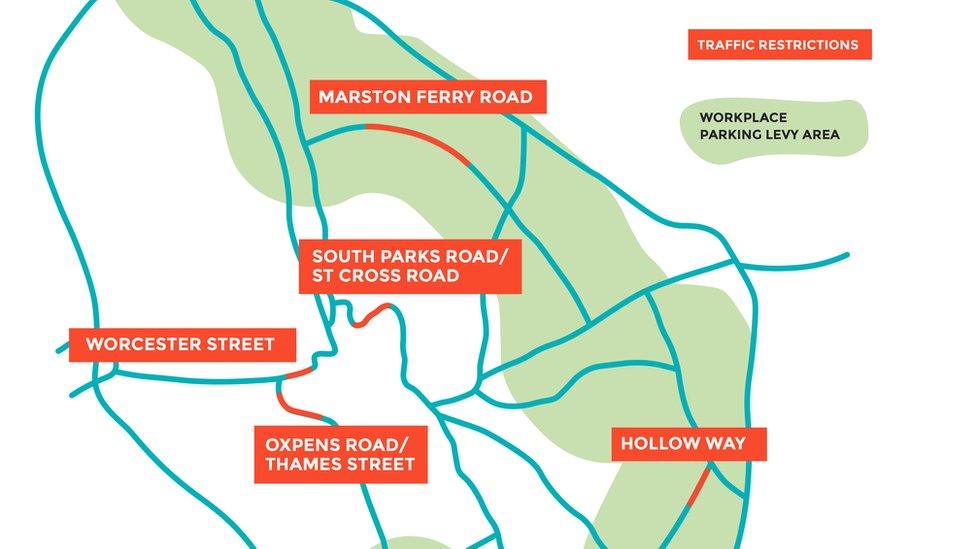
Five bus gates have been proposed in and around the city centre to prevent cars from access
A statement added the charges were a "simple and cost-efficient way to raise revenue to be invested in improved transport".
Professor Tim Schwanen, director of the Transport Studies Unit at Oxford University, added parking levies "were one of the most powerful ways to get people to change their behaviour".
The plans also include five new "bus gates" to prevent cars from driving on roads currently congested in the city centre.
County councillor for the environment Yvonne Constance said "bold steps" needed to be taken to "tackle the congestion problem".
The councils are now consulting businesses and residents on the ideas, which could be rolled out by 2021 at the earliest.
- Published31 December 2013
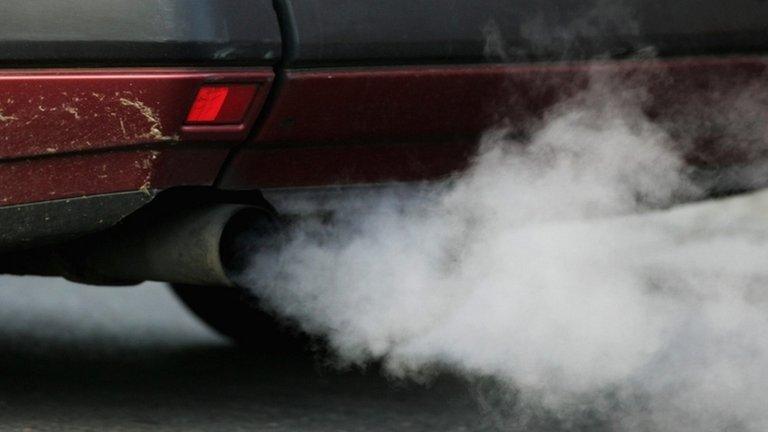
- Published12 August 2015

- Published10 March 2017
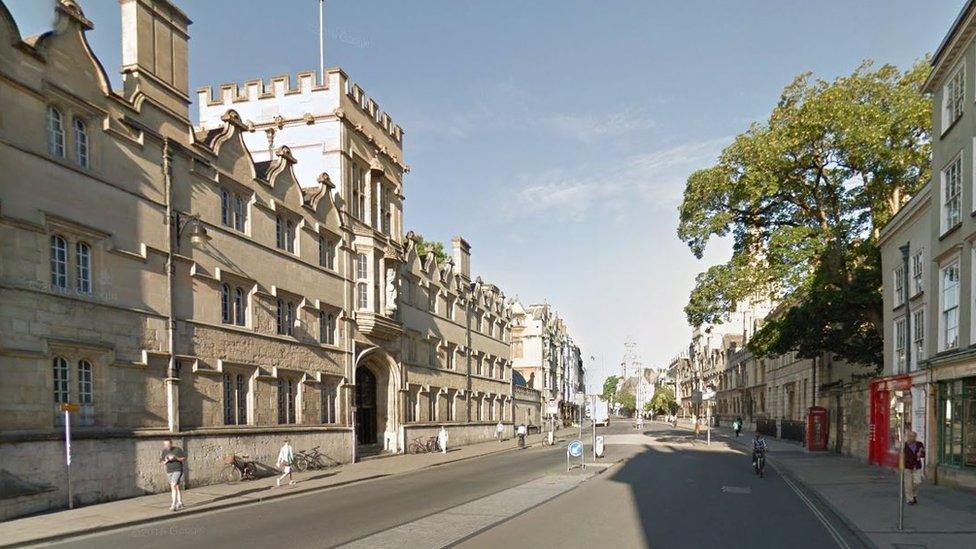
- Published26 July 2017
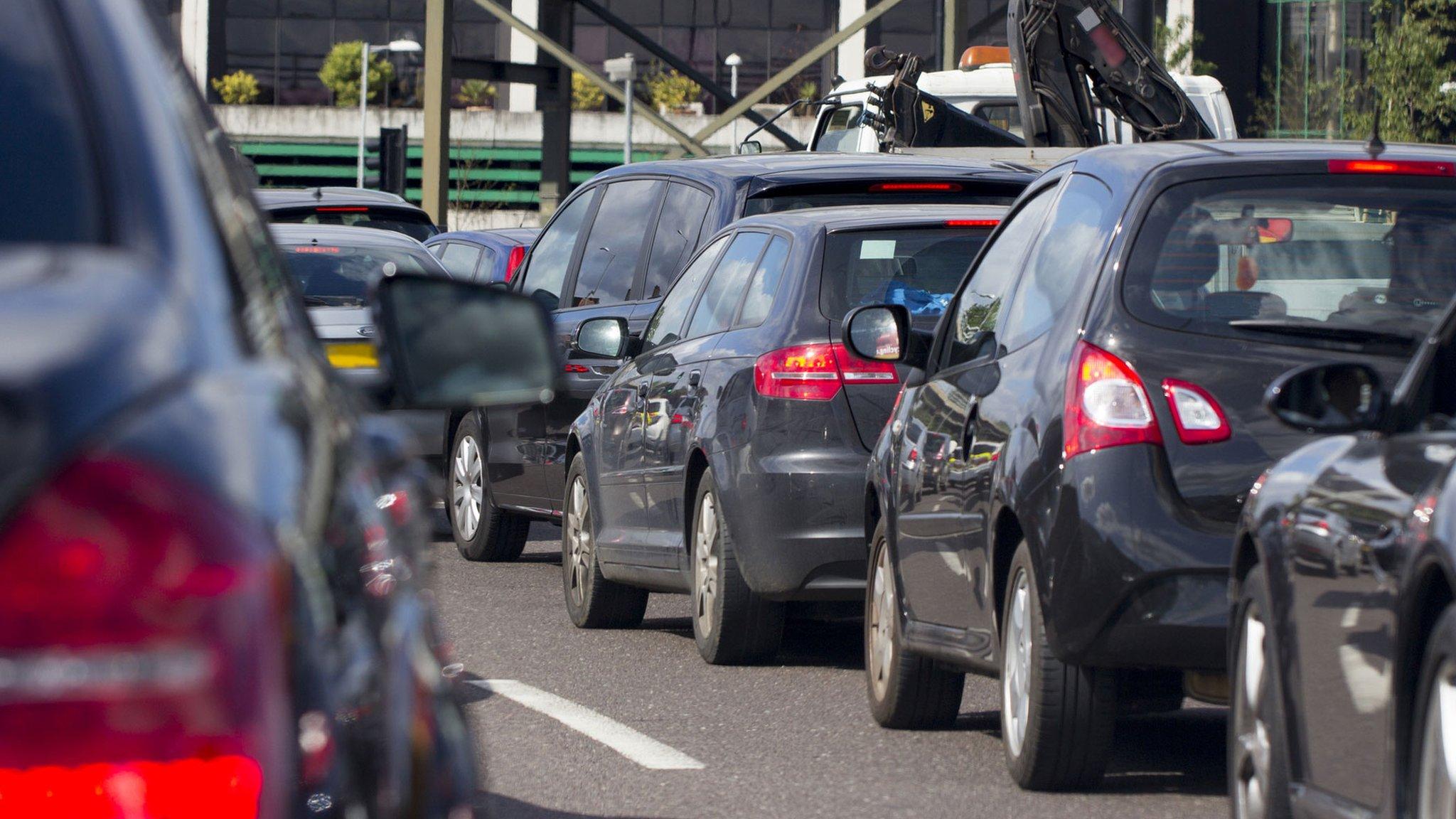
- Published11 October 2017
